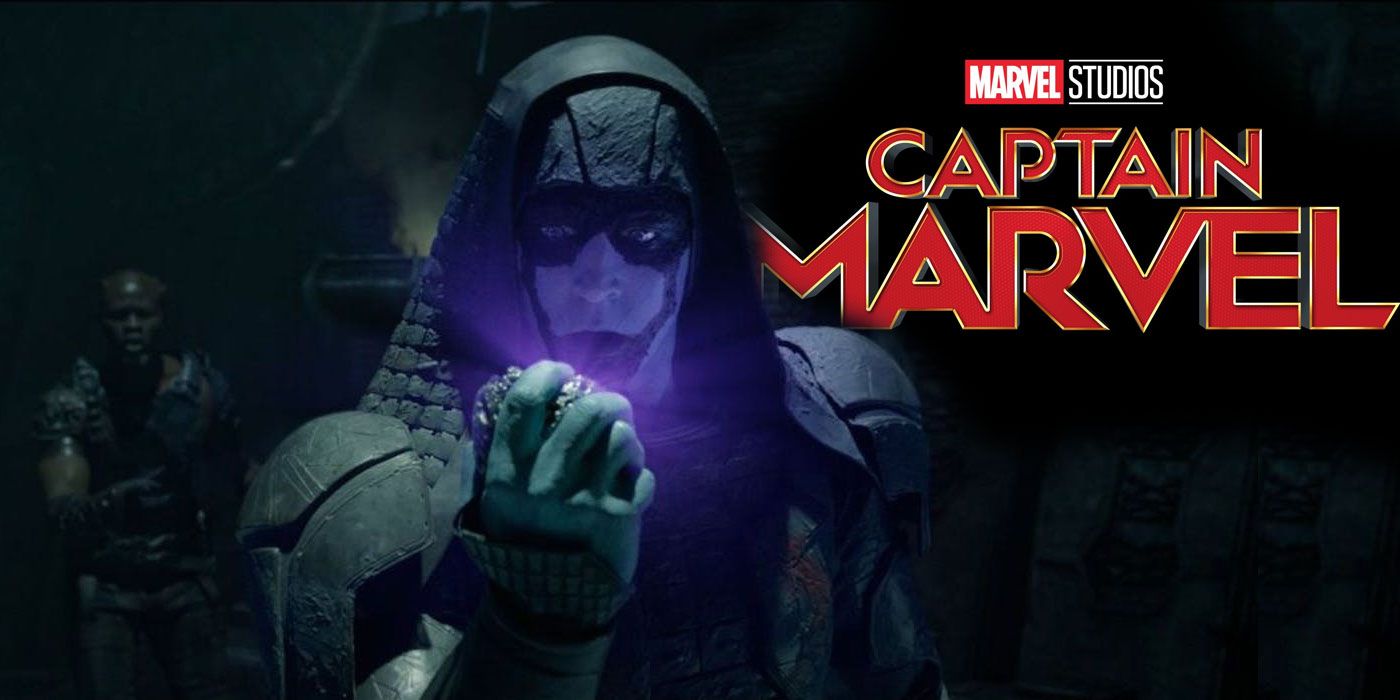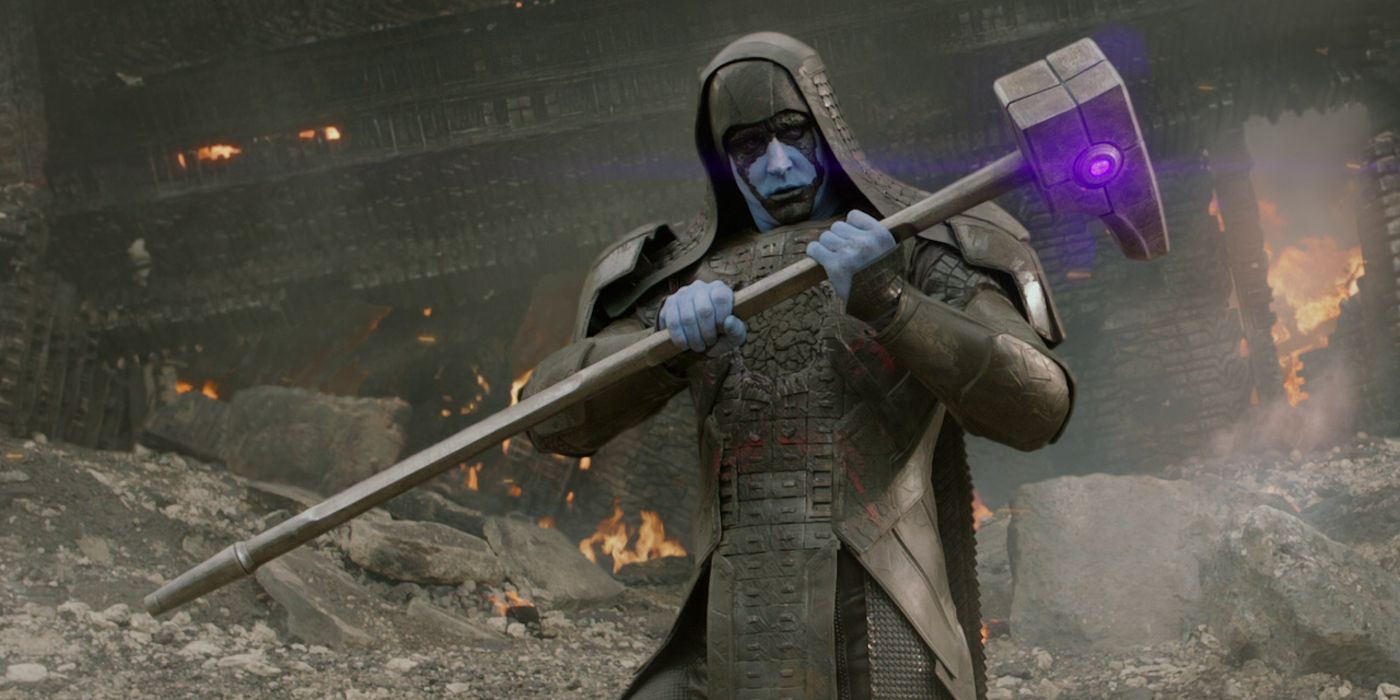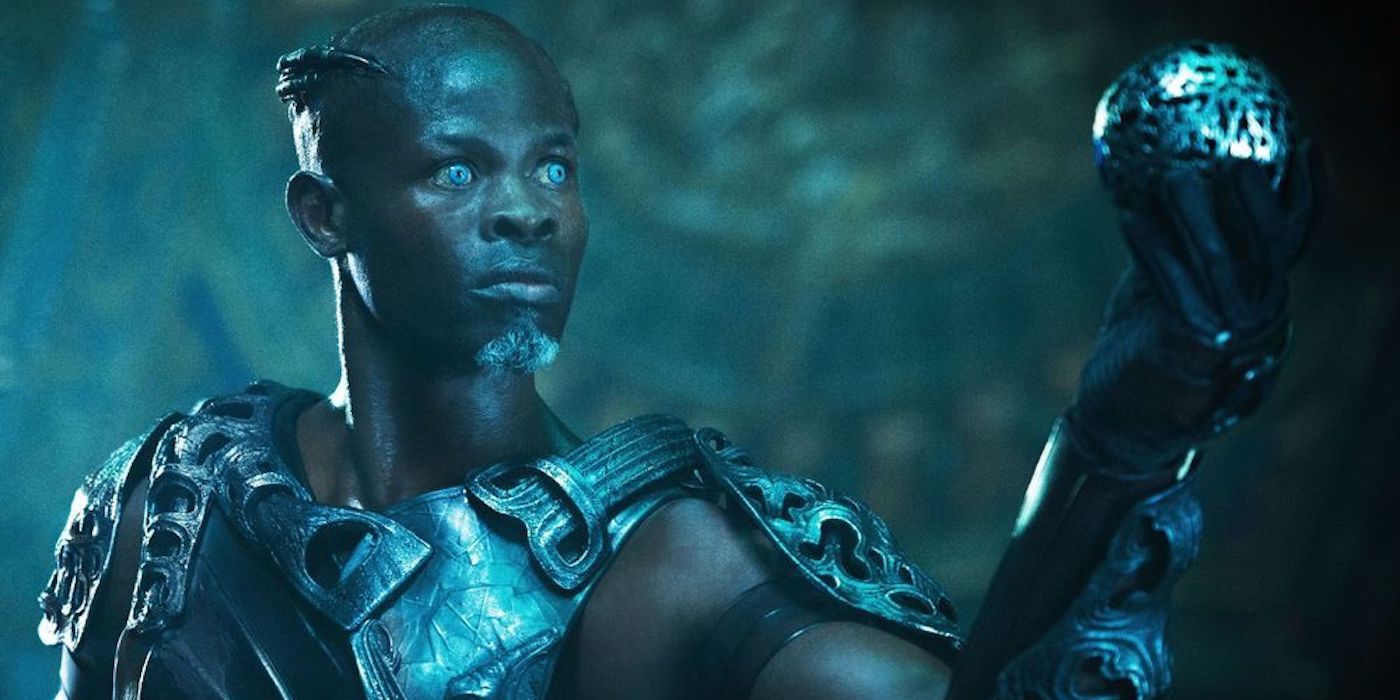Marvel Studios has gotten a lot right in its decade of existence. The Marvel Cinematic Universe has, as a whole, been a resounding success, bothcritically and financially. However, it does have a noticeable weak point; With few exceptions, the handling of its villains has been... let's call it lackluster. Sure, the likes of Loki, Zemo and Hela have impressed, but the overall criticism is valid when you look at how poorly villains such as Whiplash, Malekith, Dormammu and the Mandarin were depicted.
2014's Guardians of the Galaxy, despite being a rollicking space adventure, fell into this trap as well. While it positioned Ronan the Accuser (Lee Pace) and Korath the Pursuer (Djimon Hounsou) as bloodthirsty zealots early on, both actually became less and less foreboding as the movie progressed. By the end, the pair were nothing more than your run-of-the-mill evildoers, easily dispatched, in silly fashion at that, leaving audiences disappointed at the wasted potential.
RELATED: Clark Gregg, Lee Pace and More Confirmed to Appear in Captain Marvel
However, with both villains set to appear in Captain Marvel -- the origin story of Carol Danvers' superhero alter-ego that's set in the '90s -- the MCU, thanks to the film's jump back in time, has a shot at redeeming its genocidal duo by adding some much-needed depth to their characters. And it's going to have to do this, especially if they're to be foils to such a super-powered hero.
In James Gunn's first movie, Ronan abandoned his homeworld, Hala, after it signed a peace treaty with neighboring planet Xandar, to wage his personal holy war. He sought the Orb (which contained the Power Stone) for Thanos, in exchange for the Mad Titan destroying Xandar and its Nova Corps. However, Ronan ultimately used the Infinity Stone to power himself and his Cosmi-Rod up, with the intention of "curing" the galaxy of his enemies, Thanos now included.
RELATED: Captain Marvel Set Video Confirms Start of Production
Sadly, in the movie's finale, the petulant radical comes up laughably short in trying to kill the Guardians, finding himself distracted by Star-Lord's (Chris Pratt) dancing, only to lose the Power Stone and, subsequently, his life. It was an underwhelming finale for a despot that promised so much. In Captain Marvel though, because the plot revolves around the Kree-Skrull War, the filmmakers have a chance to rectify things by presenting his early days as a complex and intimidating antagonist who isn't someone's errand boy.
If anything, touching on Ronan's formative years would inform how he became the Accuser and make him, as well as the Kree, much more sinister than the mediocre portrayal of the species we saw so far in GotG and Agents of S.H.I.E.L.D. This trip down memory lane is exactly what the MCU needs to paint him, not just as a militant extremist, but also as a villain who's slightly noble as per the comics, where he's somewhat viewed as an anti-hero. Such a backstory would allow the audience to finally empathize with Ronan and why he wants to embark on his ambitious cosmic conquests.
Captain Marvel also has the opportunity to truly explore Korath's identity as the Pursuer. It felt like we barely scratched the surface with him as he hunted down the Guardians for Ronan. Sadly, he too came off like a mere lackey, someone who was difficult to take at all seriously. His comedic opening exchange with Star-Lord as both went after the Orb basically set his tone for the entire movie, and by the time he was killed by Drax the Destroyer -- a man Ronan beat with ease -- you couldn't help but feel like Korath was just a filler villain, a typical henchman as opposed to a deadly Kree warrior.
RELATED: Infinity War: Will The Soul Stone Actually Debut in Captain Marvel?
Captain Marvel can easily make us forget how Korath fizzled out by diving into his origin as well, providing context as to why he became one of Ronan's loyalists in the first place. Again, this sort of narrative would help us to understand Korath, his motivations, intentions and overall journey. Thus, we'd be able to establish that emotional connection with him which GotG lacked. The MCU is capable of this after all, as we recently saw with Black Panther's Killmonger.
The objective here is to get us to empathize with the bad guys, so whether it's Ronan as a general leading an army, or Korath turning into a mercenary, we end up actually caring on some level about these villains. In the Kree-Skrull War, the survival of their people will be on the line, so it's best for us to see them as unselfish soldiers who aren't simply carrying out other people's bidding. Instead, if they're shaped as warriors protecting their species, when they eventually adopt their nefarious and cutthroat mentalities, the fact that they've been molded by the interests of self preservation will be more than enough for us to like them.
Directed by Anna Boden and Ryan Fleck and featuring the Marvel character created in 1968 by Roy Thomas and Gene Colan, Captain Marvel is scheduled for release on March 8, 2019.



